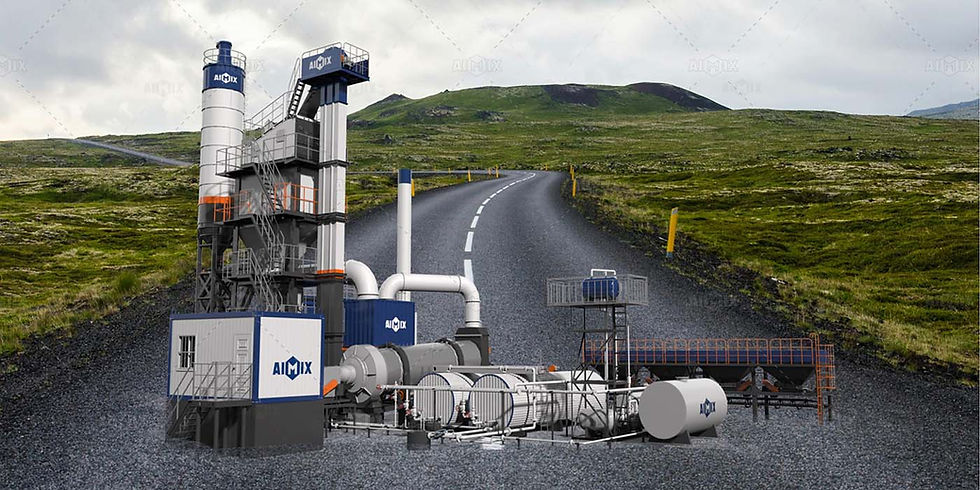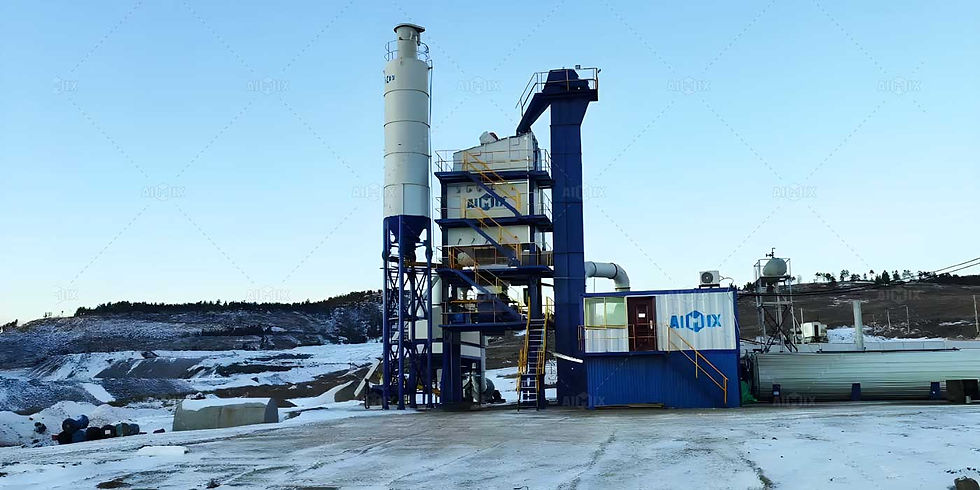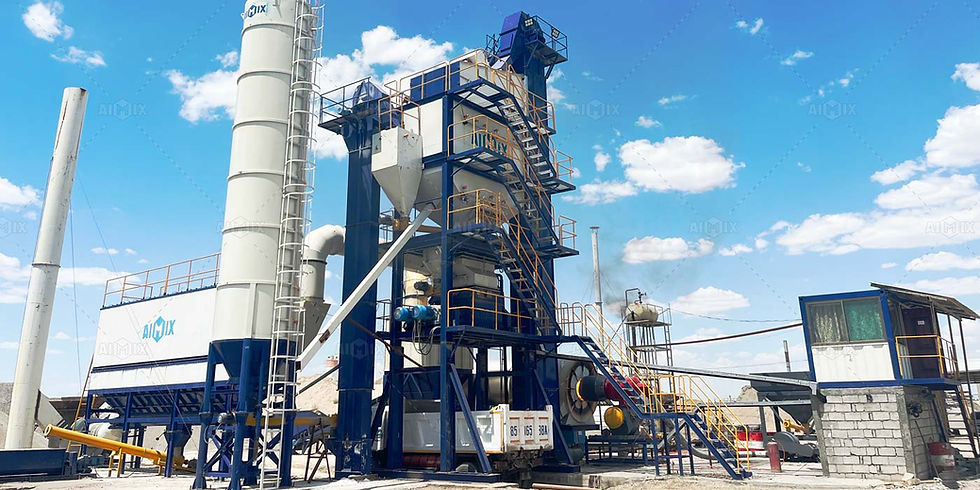Is it Profitable to Invest in a 40 TPH Asphalt Plant for Contractors Handling Less Than 15,000 Tons Annually?
- aimixglobal5
- Aug 25, 2025
- 3 min read
For many road contractors and construction companies, one of the most common questions is whether owning an asphalt plant makes sense when annual demand is relatively small. A 40 TPH (tons per hour) mini asphalt plant for sale is often seen as an entry-level choice. But is it truly profitable for contractors producing less than 15,000 tons each year? Let’s break it down from both financial and practical perspectives.

Understanding the Needs of Small to Mid-Scale Contractors
Contractors who handle projects under 15,000 tons annually usually face a dilemma. On one hand, buying asphalt from suppliers saves the upfront investment. On the other hand, outsourcing means dealing with fluctuating prices, long transportation distances, and inconsistent quality. These issues can directly affect project schedules and profit margins.
Therefore, before deciding, it is important to weigh whether producing asphalt independently with a 40 TPH plant can offer more control and long-term savings.
Cost Comparison: Buying Asphalt vs. Producing In-House
When analyzing profitability, cost is always the first consideration. Buying asphalt from suppliers often costs more per ton, especially when plants are far from project sites. Transportation fees and waiting times add extra expense. In contrast, producing asphalt in-house with a 40 TPH asphalt concrete plant gives contractors steady production capacity while reducing dependency on external sources.
For contractors producing around 12,000 to 15,000 tons annually, the break-even point can often be reached within a few years. This depends on local asphalt prices, fuel costs, and how efficiently the plant is operated.

Evaluating Return on Investment (ROI)
Profitability is not only about cost savings but also about ROI. A 40 TPH aspal mixing plant requires a moderate initial investment, which is lower than larger plants. The smaller capacity matches well with contractors handling limited annual volumes, so the risk of overcapacity is reduced.
Moreover, by controlling asphalt production, contractors can secure contracts that require on-time delivery and strict quality standards. This added reliability can generate more business opportunities and faster ROI.
Fuel Consumption, Efficiency, and Maintenance
Another important factor is daily operational efficiency. Modern 40 TPH asphalt plants are designed with energy-saving burners and improved dust collection systems. Fuel consumption is relatively low compared with higher-capacity models. For contractors with frequent small projects, this ensures that each batch is cost-effective.
Maintenance is also simpler for smaller plants. Less complex systems mean fewer breakdowns and lower repair costs. Contractors with limited technical staff often find this easier to manage, making operations more reliable and predictable.

Environmental Compliance and Market Competitiveness
Today’s construction market increasingly emphasizes environmental compliance. A 40 TPH plant equipped with dust removal systems and proper emission controls helps contractors meet local regulations. This compliance is not just about avoiding penalties; it also strengthens reputation and trust with government agencies and private clients.
In addition, contractors who produce their own asphalt can respond quickly to urgent projects. This flexibility can be a competitive advantage when bidding against competitors who rely only on third-party suppliers.
Who Benefits Most from a 40 TPH Asphalt Plant?
Not all contractors will benefit equally. Those handling scattered small to medium road projects, municipal works, or private infrastructure developments are often the best fit. The plant size is sufficient to cover recurring jobs without being oversized. However, contractors with very low demand—say under 8,000 tons annually—might find outsourcing more practical until their business volume grows.

Conclusion: Is It Worth the Investment?
For contractors producing less than 15,000 tons of asphalt per year, a 40 TPH plant can indeed be a profitable investment if planned wisely. It reduces dependency on suppliers, cuts transportation costs, ensures consistent quality, and strengthens competitiveness in the market. The key is to calculate the expected tonnage, operating costs, and project pipeline before making a final decision.
Work With Us to Find the Right Asphalt Plant
Choosing the right asphalt plant is a major step for any contractor. If you are considering whether a 40 TPH model suits your projects, we can help you analyze your workload, expected ROI, and technical requirements. Our team has supported many contractors in Indonesia and beyond, providing reliable asphalt mixing plants that fit both budget and project needs. Contact us today to discuss your situation and find a solution tailored to your business.



Comments